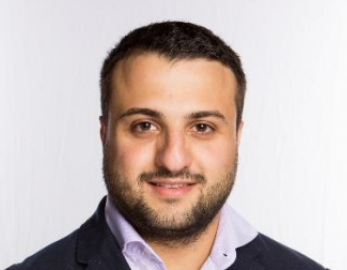
- This event has passed.
Fall 2022 Data Science Seminar Series: Raed Al Kontar: Federated Data Analytics for the Internet of Federated Things
October 31, 2022 @ 2:00 pm – 3:00 pm

Location: Blocker 220
Also online via Zoom:
Meeting ID: 998 4499 3279
Password: 724615
Speaker: Raed Al Kontar, Ph.D. Assistant Professor, Industrial & Operations Engineering, University of Michigan
Faculty Host: Yu Ding, TAMIDS/ISEN
Abstract: A critical change is happening in today’s Internet of Things (IoT). The computational power at the edge device is steadily increasing. AI chips are rapidly infiltrating the market. Mobile phones’ processing power is becoming comparable to laptops available for everyday use. Tesla’s autopilot system has 150 million times more computing power than Apollo 11, and small local computers such as Raspberry Pis have become commonplace in manufacturing systems. This change opens a new paradigm of data analytics within IoT, one that exploits edge compute resources to process more of users’ data where it’s created. More specifically, with the availability of some computing resources at each client, clients can execute small computations locally, instead of sharing all raw data to a central cloud, and then only share the minimum information needed to collaboratively extract knowledge and build smart analytics while keeping their personal data stored locally. This paradigm shift sets forth many intrinsic advantages, including privacy, cost-effectiveness, diversity, fairness, and reduced computation and latency, among many others. In this talk, the speaker terms this future of IoT as the “Internet of Federated Things (IoFT)” and discuss his recent efforts in federated data analytics aimed at bringing this future into reality. Specifically, the speaker will present federated analytics approaches to tackle three central challenges within IoFT: (1) Personalization: where participants borrow strength from each other yet retain their own individualized models. (2) Fairness: to allow solutions with good representation power across groups of heterogeneous participants (3) Distributed uncertainty quantification (UQ): where we bring federated analytics to correlated paradigms beyond empirical risk minimization to quantify uncertainty. The speaker plans to end the talk by describing prototyping efforts to generate real-life IoFT data.
Biography: Dr. Raed Al Kontar is an assistant professor in the Industrial & Operations Engineering Department at the University of Michigan and an affiliate with the Michigan Institute for Data Science. Dr. Raed’s research focuses on distributed and federated probabilistic modeling. He obtained an undergraduate degree in civil & environmental engineering and mathematics from the American University of Beirut in 2014 followed by a master’s degree in statistics in 2017 and a Ph.D. degree in Industrial & System Engineering in 2018, both from the University of Wisconsin-Madison. Dr. Raed has seven best paper awards from the INFORMS Quality, Statistics & Reliability section, INFORMS Data Mining section, and IISE. Dr. Raed received the NSF CAREER award in 2022. His research is currently supported by both NSF and NIH.
You can also click this link to join the seminar

For more information about TAMIDS Seminar Series, please contact Ms. Jennifer South at jsouth@tamu.edu



